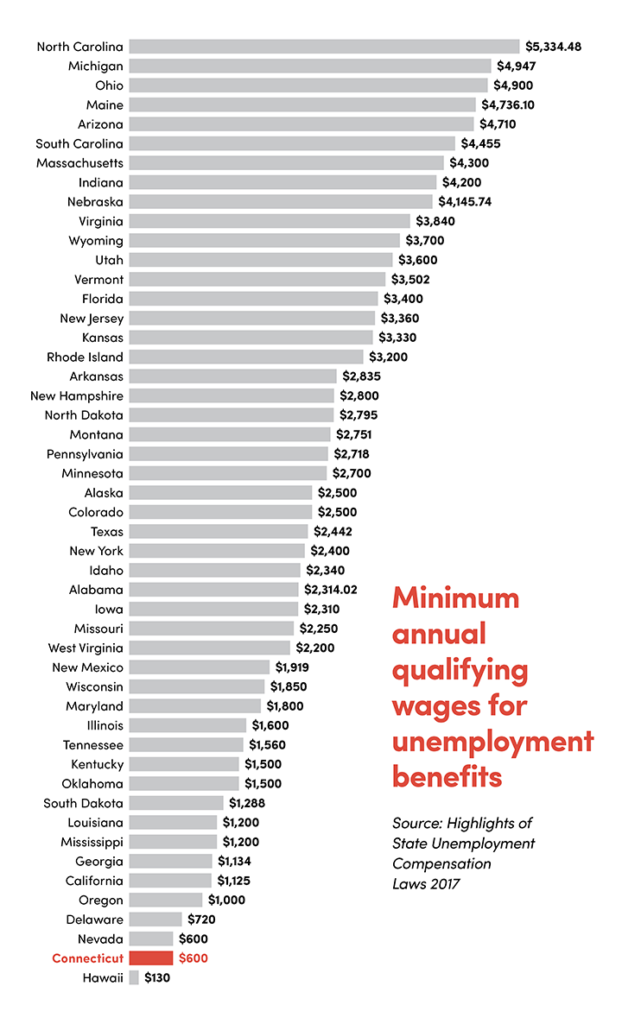Unemployment Compensation Reforms Head to House

The legislature’s Finance, Revenue, and Bonding Committee overwhelmingly approved a bill April 24 that restores solvency to the state’s Unemployment Compensation Trust Fund.
HB 5480 now goes to the state House, where it faces opposition from some interest groups who feel the reforms designed to shore up the fund may hurt workers.

Connecticut hasn’t raised the qualifying wage threshold for unemployment benefits in 50 years.
The General Assembly’s nonpartisan Office of Fiscal Analysis has already determined that HB 5480 helps restore the fund’s solvency, saving more than $163 million in the first two years.
The Finance Committee approved the bill with no debate April 24 by a 37-10 vote.
The Labor and Public Employees Committee previously approved the bill, which makes these specific reforms:
- Raises the minimum earnings to qualify for unemployment benefits to $2,000. Claimants in Connecticut need only earn $600 in a year to qualify for benefits—the third-lowest earnings requirement in the U.S. This means a claimant earning the minimum wage can qualify for benefits after only 60 hours of work in an entire year. For perspective, 32 states and territories require between $2,000 and $5,000 in earnings. Connecticut hasn’t raised its requirement in 50 years.
- Prohibits claimants from receiving unemployment benefits until they have exhausted their severance pay. This is already the case for most workers.
- Freezes the maximum weekly benefit rate in any year in which we have not attained 70% of our trust fund solvency goal. The maximum benefit rate increases by up to $18 every year and rose throughout the recession. Foregoing increases in years when the fund is unhealthy prevents the problem from getting worse.
- Redefines “one instance” of unexcused employee absence from work to mean a single day of no call, no show to work. Current law defines one instance as “one day or two consecutive days.” Employers commonly misinterpret this rule and end up paying benefits for employees who abandoned their job.
In just a few short years, these savings could push the fund’s current balance of about $400 million toward its solvency goal of $1.3 billion—especially if Connecticut’s economy gains strength.
With two weeks left in the legislative session, it’s critical that lawmakers do what is necessary and enact the reforms found in HB 5480 to ensure the fund’s safety net is solvent for the future of Connecticut workers.
For more information, contact CBIA’s Eric Gjede (860.480.1784) | @egjede
RELATED
EXPLORE BY CATEGORY
Stay Connected with CBIA News Digests
The latest news and information delivered directly to your inbox.


